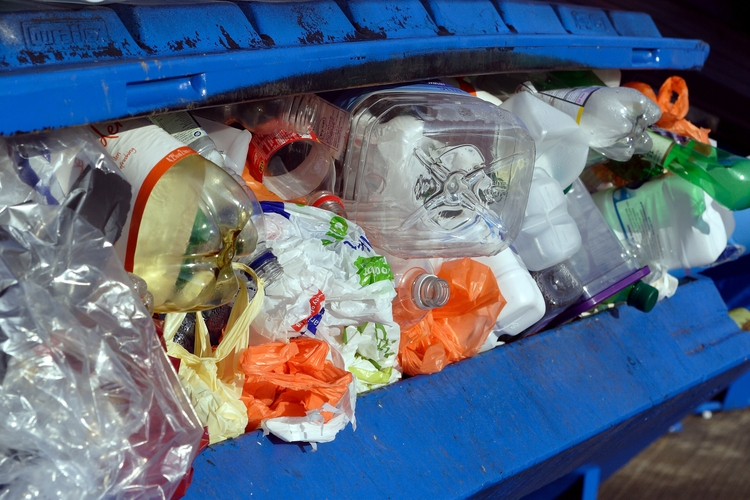
The UK continues to rely heavily upon overseas processing for recyclable waste, despite advances in domestic infrastructure
By
A recent report has revealed most of the UK’s plastic waste is now being exported abroad, with data showing exports have surged by 84 per cent in the first half of 2025 compared to last year.
Despite advances in the UK’s domestic recycling infrastructure, it is often cheaper for councils and private companies to export recyclable material than to handle it domestically.
Enjoying this article? Check out our related reads:
While this may save costs, this means the UK’s existing recycling plants are shutting down. In the last two years alone, 21 plastic recycling facilities have shut due to rising operation costs and weak demand for recycled plastic. Consequently, fewer recycling facilities in operation means councils are left with little choice but to ship recyclable waste abroad, creating a vicious cycle.
Last year, the majority of the UK’s recyclable waste – with plastic as its most significant contributor – was exported to Turkiyë – around 150,000 tonnes. The next largest nations processing our trash are the Netherlands (104,000 tonnes), Germany (51,006 tonnes), Belgium (43,005 tonnes), Malaysia (38,471 tonnes) and Indonesia (24,006 tonnes).
The UK also relies heavily on other countries to recycle waste proucts such as paper, scrap metal and glass. In 2023,the nation shipped around 445,000 tonnes of glass mainly to Portugal, Belgium and Spain, where much of it is reprocessed for reuse. As well as this, around 7.5 million tonnes of scrap metal – iron and steel – are sent to Turkiyë, Egypt and India.

The UK is the third-largest exporter of plastic waste after Germany and Japan. Last year alone it exported almost 600,000 tonnes of plastic waste, an uptick of five per cent from 2023. That export alone may generate up to 60,000 tonnes of carbon dioxide, as ships – often powered by planet-polluting fuels – carry plastic waste to its final destination abroad.
Some of this waste is legitimately recycled, but a vast proportion ends up either being burned, dumped or mismanaged, wreaking havoc upon the planet due to emissions and pollution.
If even half of the UK’s exported recyclable materials were processed domestically, the nation could save more than a million tonnes of carbon dioxide emissions each year.
‘The UK’s recycling system gives people the impression that their waste is being reused responsibly, but much of it simply becomes someone else’s problem overseas,’ said dry mixed recycling expert Mark Hall.
‘What we’re seeing is a system that relies heavily on exports rather than on building long-term, sustainable infrastructure here at home. Until we invest properly in domestic recycling facilities, this cycle will continue and the UK will remain dependent on other countries to handle materials that could easily be processed locally.’




